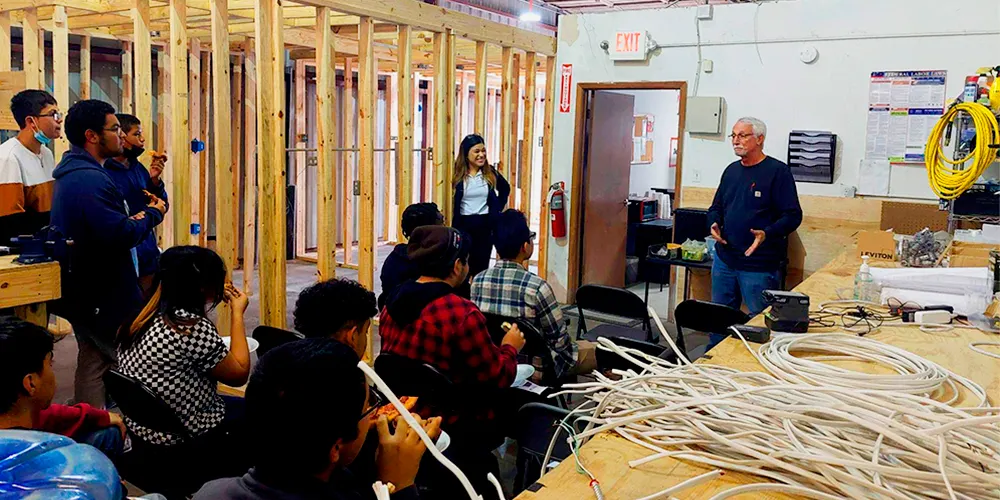Vocational schools in Texas offer career-oriented training in high-demand industries such as healthcare, skilled trades, and technology. Graduates can work as paralegals, medical assistants, electricians, automobile service technicians, and dental hygienists. Cosmetologists, paramedics, cooks, and construction managers are among the other professions trained through vocational programs.
Vocational programs mix study and hands-on training. For example, paramedic students receive training in ambulances and hospitals, whereas electrician students receive laboratory and practicum instruction.
Many vocational schools in Texas provide self-paced or accelerated options to accommodate the busy schedules of their students. To increase flexibility, students can consider online vocational training. Our ranking of the best vocational schools in Texas can help prospective students find the greatest fit for their career objectives.
Table of Contents
Facts About Vocational Schools in Texas
According to the National Center for Education Statistics, there are more than 300 vocational schools in Texas that teach everything from beauty and hair design to information technology, medical professions, and welding.
Ambulance drivers and attendants have the fastest-growing employment in Texas. Personal care aide employment is also increasing. Texas also has more welders than any other state. Are you interested in working as a commercial pilot? Texas contains 1,450 airports, including 24 commercial airports.
Depending on the trade you pick, job security, career prospects, and a fair wage are available after graduating from any vocational school in Texas.
Average Cost of Vocational School in Texas
In general, vocational schools cost less than colleges and universities. Texas college students spend an average of more than $100,000 on a bachelor’s degree. A trade school diploma costs an average of $16,000, whereas a trade school degree costs $33,000.
When you consider the return on investment (ROI), trade school makes more sense. A bachelor’s degree will only increase your annual salary by roughly $30,000, but it will cost you at least $70,000 more. In addition, you will most likely have student loan debt to repay over time.
However, a bachelor’s degree may result in higher lifetime earnings; thus, it may be beneficial to continue your education after some time in the workforce with a Texas trade school education.
Accreditations of Vocational Schools in Texas
You must ensure that the trade school and program you intend to attend are properly accredited at the state, national, and industry levels. If your school is not accredited, you may be unable to take the licensing exam for numerous trades.
For example, if your trade school is accredited by the Southern Association of Colleges and Schools Commission on Colleges, but the physical therapist assistant program you intend to pursue is not accredited by the Commission on Accreditation in Physical Therapy Education, you will be unable to obtain a license.
An authorized certification will demonstrate that you have the skills required to work in a given trade. Non-accredited programs may not include the necessary information or skills.
Related: List Of Best Nursing Schools In Houston Texas
Financial Aid for Vocational School in Texas
As a prospective trade school student in Texas or someone who is already enrolled in one of the vocational schools in Texas, many financial aid programs may be able to help you cover some or all of your training expenses. We look at some of the most prominent possibilities below;
- Community Foundation of West Texas provides more than 100 scholarships to students in the South Plains. The requirements differ based on the scholarship in question.
- Texas Education and Training Voucher Program provides up to $5,000 in financial assistance to former foster children. Candidates must attend a postsecondary institution, including vocational trade schools.
- Amarillo Area Foundation – provides numerous scholarships to students in the Amarillo area.
- Maximum Independence Scholarship grants up to $1,000 to students in North Texas attending vocational trade schools. Candidates must have completed at least 15 hours of community service.
- Stars Award Fund – This award is open to applicants from South and West Texas who have a GPA of at least 2.7. Applicants must be enrolled in an associate degree program at one of the community vocational schools in Texas.
Best Vocational Schools in Texas
Vocational schools in Texas can help students develop in their careers and boost their earning potential. Our list of the best vocational schools in Texas is designed to assist students in finding the program that best meets their needs.
1. South Texas College:
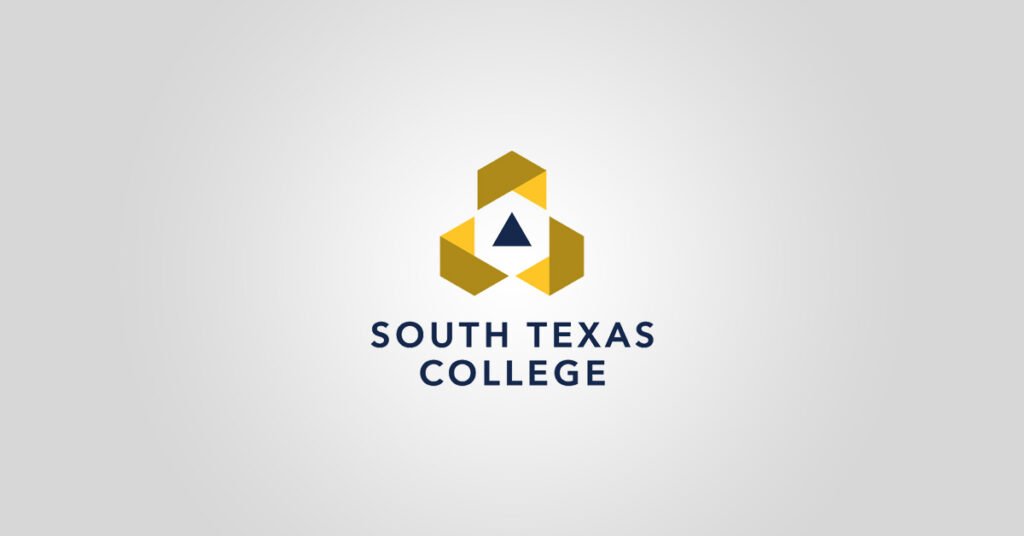
South Texas College is a McAllen-based university that offers college-level degrees to students from near and far. The public institution offers three bachelor’s programs.
- McAllen, TX
- 4 year
- Campus + Online
- Accredited
- Average Tuition – $2,610 – $6,000
Every student benefits from a supportive learning environment, which includes professional instructors and industry-relevant coursework. Degree candidates undergo a curriculum that covers both foundational and advanced areas relevant to their field. Students can expand their knowledge through experiential learning options such as internships.
Throughout their studies, students benefit from career services, academic advice, and other institutional resources. Students can consult with a financial assistance counselor to assess their eligibility for scholarships, fellowships, and other funding alternatives. The college connects students to a variety of funding possibilities, with 89% of all enrollment obtaining assistance.
2. Lone Star College System:
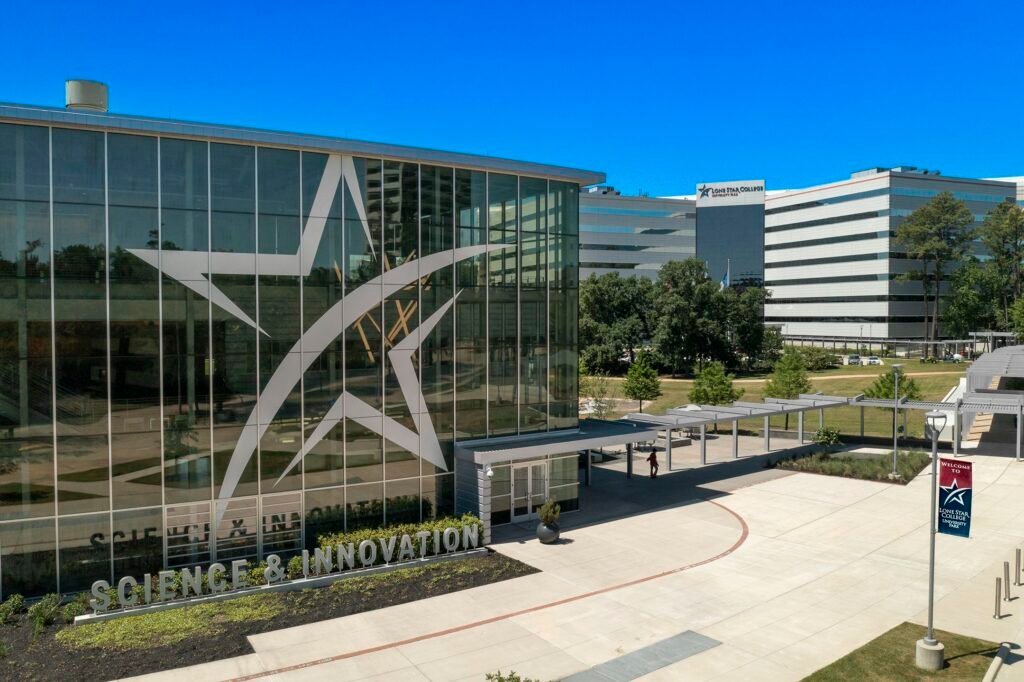
The Lone Star College System, a public college located in The Woodlands, provides educational opportunities for students of all levels.
- The Woodlands, TX
- 2 year
- Campus + Online
- Accredited
- Average Tuition – $3,696 – $5,016
Students benefit from difficult courses, top-tier teachers, and industry-specific learning experiences. Students study both foundational and advanced coursework during their studies. Students can expand their knowledge through research projects, internships, and other experiential learning opportunities.
Candidates can benefit from career services, academic advice, and other institutional resources. Prospective applicants can meet with a financial aid consultant to discuss potential financing sources for their education. The college reports that around 56% of all new students get financial help. Institutional assistance adds to the college’s graduation rate of 18%.
3. Texas State Technical College:
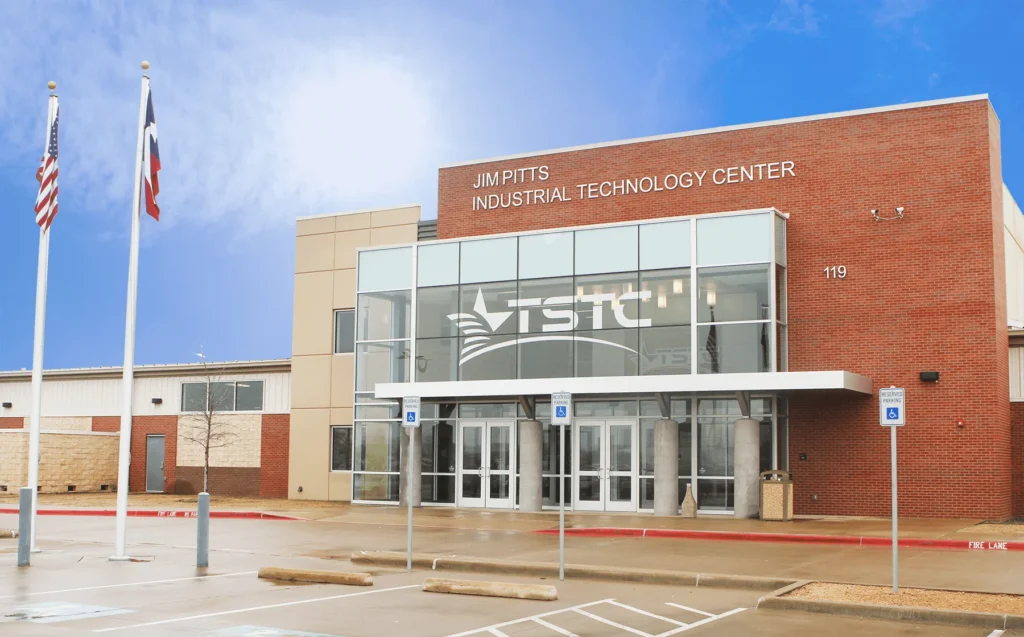
Texas State Technical College, a pioneer in hybrid education, offers both in-person and online learning options from its Waco (main campus) location.
- Waco, TX
- 2 year
- Campus + Online
- Accredited
- Average Tuition – $ 5,877 – $10,191
Enrollees interact with top academics and gain skills and knowledge through industry-relevant coursework. During their program, students might work with teachers on research projects, apply for internships, and pursue other experiential learning opportunities.
To seek assistance and direction, students can contact career services, academic advising, and other offices. The financial assistance office can help applicants find funding opportunities. At the college, 82% of students get financial help. Of all enrollees, 37% graduate.
4. San Jacinto Community College:
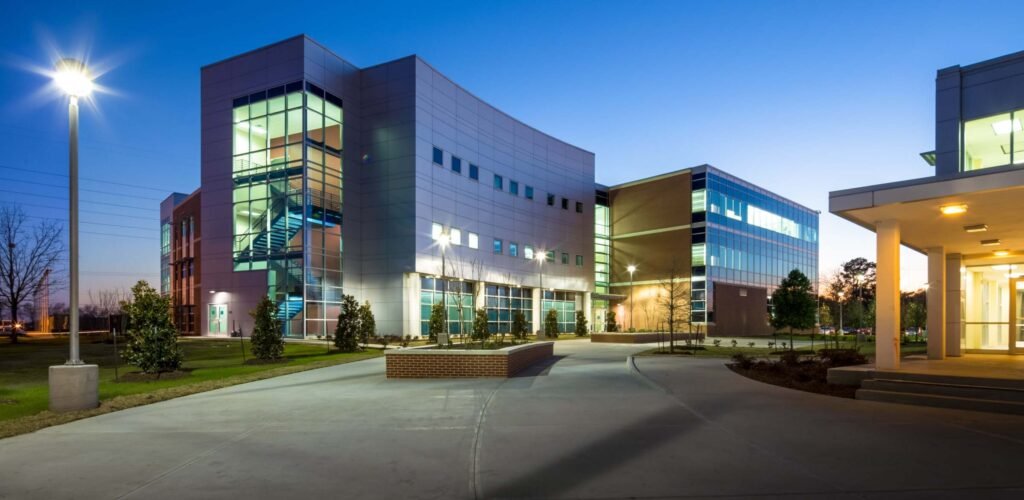
San Jacinto Community College‘s main campus in Pasadena offers several educational possibilities.
- Pasadena, TX
- 2 year
- Campus + Online
- Accredited
- Average Tuition – $3,240 – $5,040
Whether in person or online, students benefit from a challenging curriculum, active staff, and hands-on learning opportunities. Students complete both foundational and advanced coursework in their academic field. Enrollees can augment their education with experiential learning opportunities such as internships and research projects.
Candidates can seek support and direction from career services, academic advising, and other agencies during their education. Prospective applicants can meet with a financial aid consultant to discuss potential financing sources for their education. Of all enrollees, 51% receive internal and external funding. The college has a 32% graduation rate.
5. Vernon College:
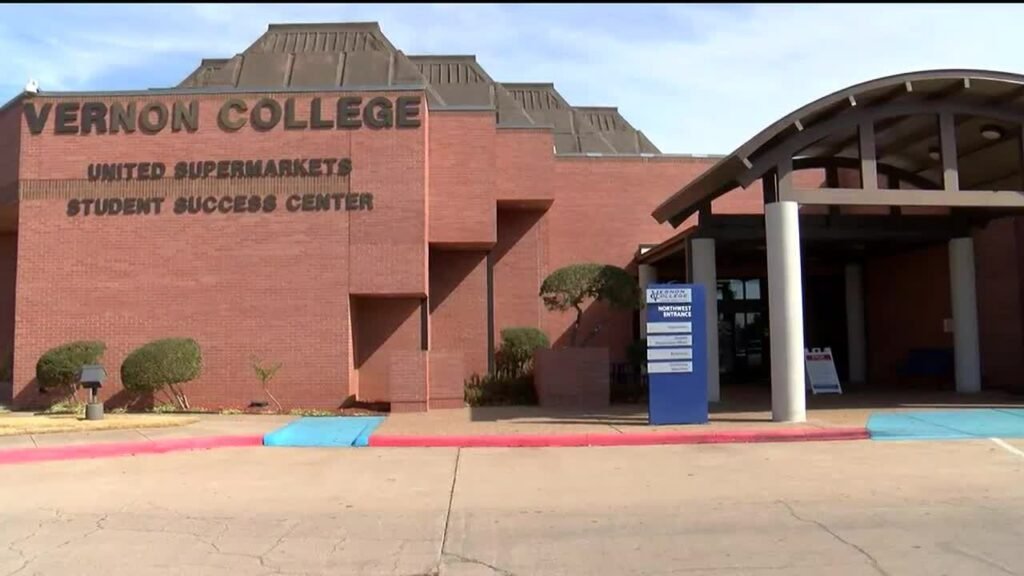
Vernon College offers exceptional study possibilities to students through its hybrid programs. Every student benefits from a supportive learning environment, which includes professional instructors and industry-relevant coursework.
- Vernon, TX
- 2 year
- Campus
- Accredited
- Average Tuition – $2,280 – $3,840
Enrollees take both advanced and general classes, learning skills and knowledge relevant to their field of study. Participants can take advantage of collaborative opportunities throughout their program, such as faculty-led research projects, internships, and professional activities.
Candidates can use university resources, including career services and academic guidance, throughout their studies. Prospective applicants can visit the financial assistance office to discuss financing options and determine eligibility. According to the college, 88% of all new students receive financial assistance. The university boasts a graduation rate of 22%.
6. Palo Alto College:
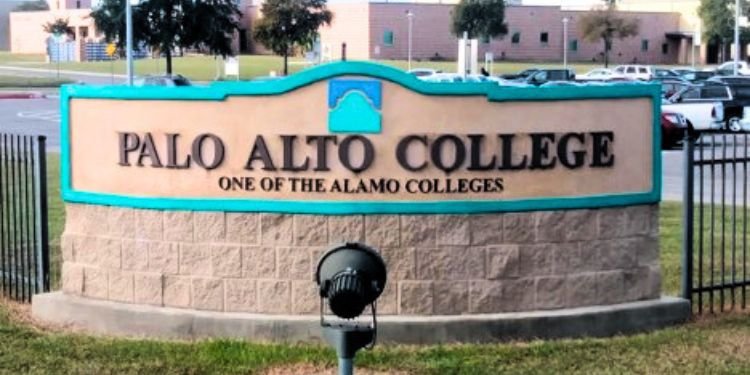
Students seeking a flexible degree can consider attending Palo Alto College in San Antonio. Enrollees benefit from intensive courses, skilled teachers, and diverse study options.
- San Antonio, TX
- 2 year
- Campus + Online
- Accredited
- Average Tuition – $ 6,450 – $13,980
Students complete both foundational and advanced coursework in their academic field; they can also explore extra learning options, such as faculty-led research projects and internships.
Candidates can use university resources, including career services and academic guidance, throughout their studies. Prospective applicants can inquire with the financial aid office about scholarship eligibility. According to the college, 85% of all enrolled students receive financial aid, and 30% of all admitted students graduate.
7. North Central Texas College:
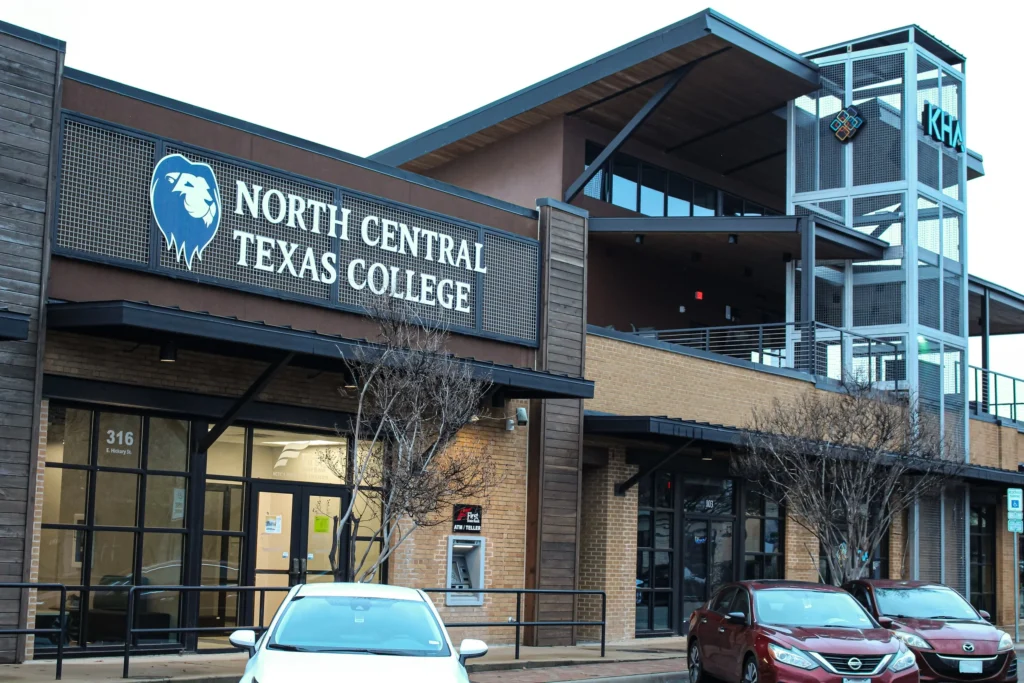
North Central Texas College, a public university, offers a number of programs appropriate for both in-person and online study.
- Gainesville, TX
- 2 year
- Campus + Online
- Accredited
- Average Tuition – $2,760 – $4,944
All students benefit from rigorous core curricula, highly qualified staff, and supportive learning environments. Throughout their studies, students take both foundational and subject-specific courses. Students can enhance their education with experiential learning opportunities like internships and research projects.
Candidates can seek support and direction from career services, academic advising, and other agencies during their education. Students can contact the financial assistance office to see if they are eligible for scholarships, fellowships, and other financing possibilities. Of all enrollees, 62% receive internal and external funding, and institutional assistance adds to the college’s graduation rate of 18%.
8. Houston Community College:
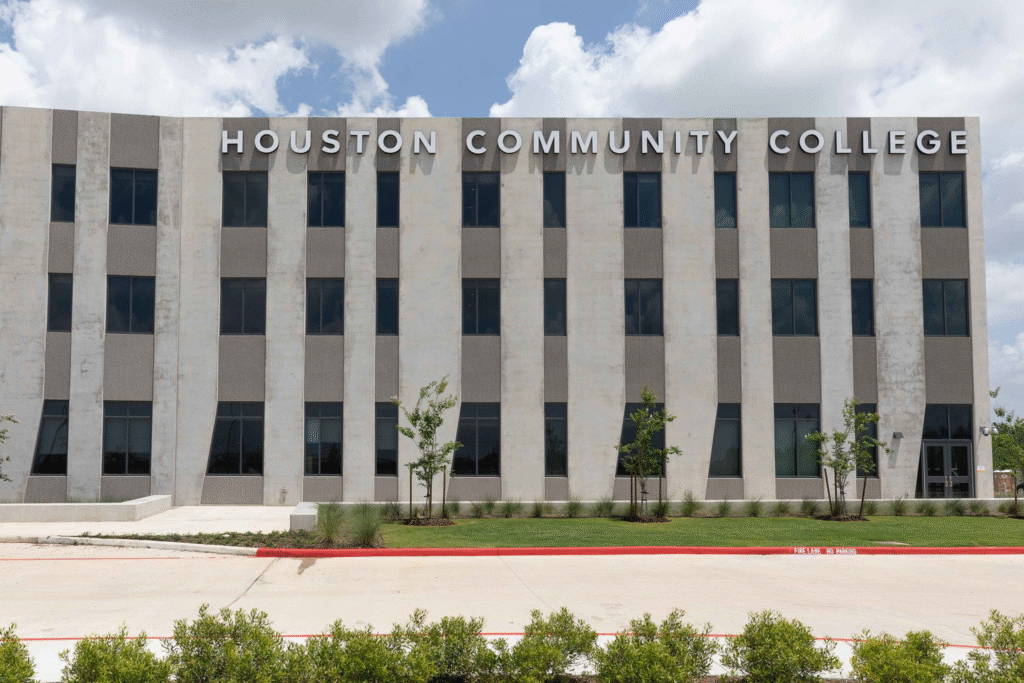
Houston Community College, a pioneer in hybrid education, offers several in-person and totally remote programs. Students benefit from difficult courses, top-tier teachers, and industry-specific learning experiences.
The program curriculum requires students to finish both foundational and advanced coursework. Throughout their program, candidates can work with instructors on research projects, pursue internships, and explore other experiential learning opportunities.
- Houston, TX
- 2 year
- Campus + Online
- Accredited
- Average Tuition – $2,904 -$3,624
Learners can seek assistance and guidance during their studies by contacting career services, academic advising, and other offices. The financial assistance office can provide students with information on scholarships, fellowships, and other funding alternatives for their study. According to the college, 63% of all enrolled students get financial help. The college boasts an 18% graduation rate.
9. Central Texas College:
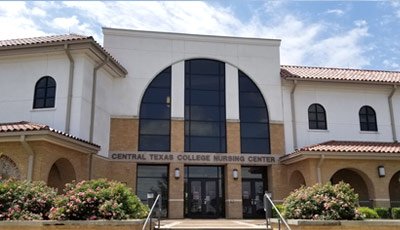
Central Texas College, a public university, offers a number of programs appropriate for both in-person and online study. Candidates benefit from a supportive learning community, which includes professional teachers and industry-relevant training.
- Killeen, TX
- 2 year
- Campus + Online
- Accredited
- Average Tuition – $3,390 – $7,050
Enrollees study both industry-specific and general curricula, developing the skills and knowledge required for success. Participants can take advantage of collaborative opportunities throughout their program, such as faculty-led research projects, internships, and professional activities.
Students can get career services and academic advising throughout their program. Prospective applicants can inquire with the financial aid office about scholarship eligibility. At the college, 72% of all students get financial help, and the university boasts a graduation rate of 15%.
10. Temple College:
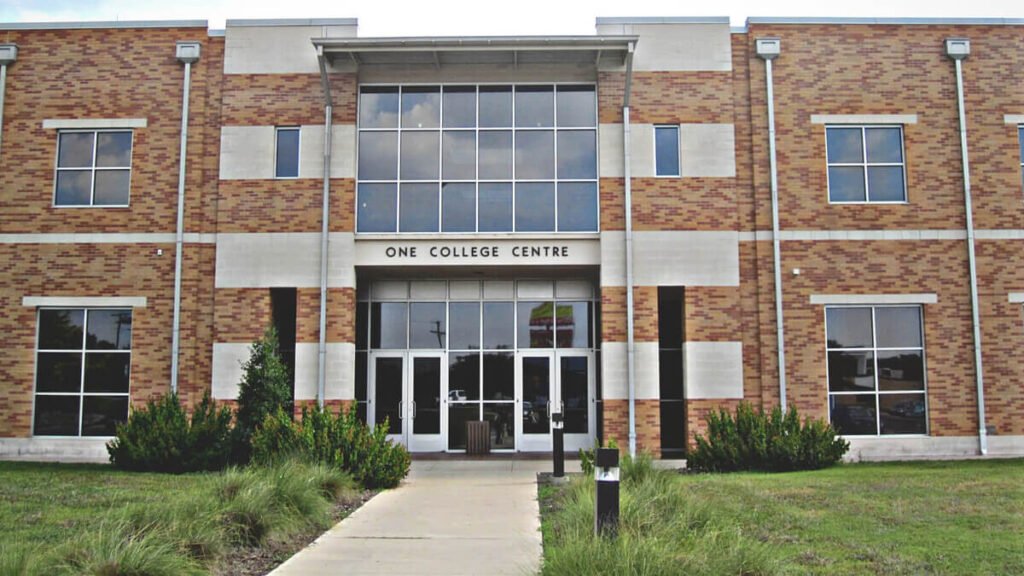
Temple College, a pioneer in hybrid education, provides in-person and online learning possibilities from its main campus in Temple. Students benefit from a friendly learning environment, responsive staff, and competitive degree alternatives.
- Temple, TX
- 2 year
- Campus
- Accredited
- Average Tuition – $1,848 – $2,832
Candidates complete both basic and advanced coursework in their subject field. Enrollees can augment their education with experiential learning opportunities such as internships and research projects.
The college provides students with a variety of institutional resources, including career services and academic guidance. Prospective applicants can inquire with the financial aid office about scholarship eligibility. The college connects students to a number of funding alternatives, with 78% of all enrollment receiving assistance.
FAQs
What can I learn in vocational schools in Texas?
Trade school programs combine classroom and experiential learning to teach you skills in healthcare, technology, emergency services, and a variety of other professional contexts.
What are some examples of vocational positions?
Some examples of vocational jobs are:
- Electricians
- Paramedics
- Cosmetologists
- Mechanics
- Cooks
- Massage Therapists
Is there a distinction between trade schools and colleges?
Yes. Trade schools provide job-specific training, whereas colleges focus on academic qualifications.
Conclusion
Individuals interested in pursuing a trade profession at any vocational school in Texas will be pleased to learn that the state has established trade schools to assist them in doing so. These schools provide extensive programs in a variety of industries, including health, business, science, technology, and liberal arts.

